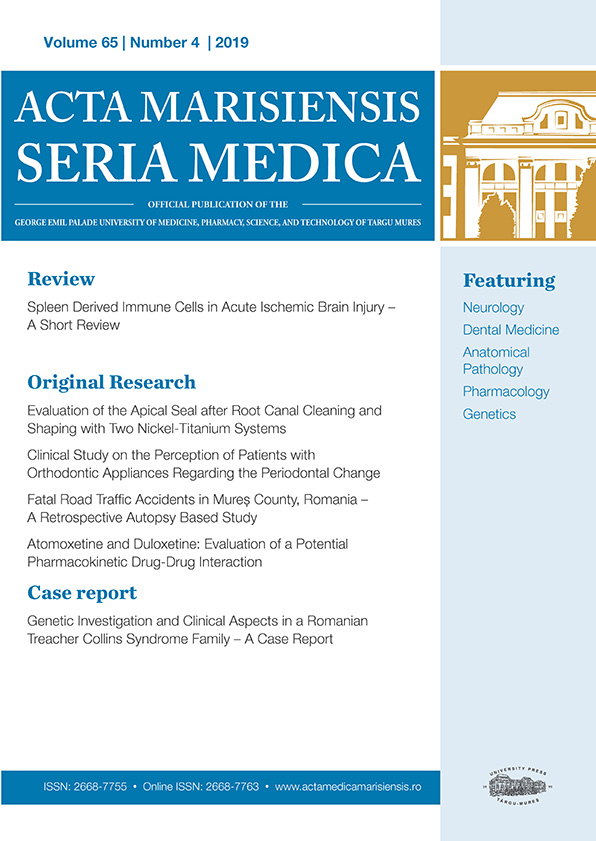Unified Protocols for Transdiagnostic Treatment versus CBT Beckian approaches for medical students with emotional disorders
DOI:
https://doi.org/10.2478/amma-2022-0002Keywords:
Cognitive-Behavioral Therapy, Unified Protocols, Transdiagnostic, emotional disorders, medical studentsAbstract
Background: Emotional disorders are highly prevalent among medical students, impacting their academic performance and general quality of life. It was shown that cognitive-behavioral and emotion regulation strategies are efficient for reducing anxiety and depressive symptoms in young people.
Objective: This study aims to compare the efficiency of standard individual Cognitive-Behavioral Therapy (CBT) to a group intervention based on the Unified Protocol for Transdiagnostic Treatment (UPTT) of emotional disorders in two groups of medical students with similar baseline characteristics.
Method: The sample of this research was composed of 64 medical students in total, of which 34 were included in the CBT group (Mage= 19.5 years, SD= 0.96) and 30 were included in the UPTT group (Mage= 19.4 years, SD= 0.93). The level of irrational beliefs and emotional distress were measured before and after the interventions, which were carried out by certificated psychotherapists.
Results: Statiscally significant differences were observed between pre-test and post-test in both groups. The level of irrational beliefs dropped after the CBT (M=62.91, SD=21.30, p<0.05) and the UPTT intervention (M=67.33, SD=34.89, p<0.05), respectively. Similarly, the profile of emotional distress changed after the CBT (M=77.62, SD=16.97, p<0.05) and the UPTT intervention (M=68.77, SD=20.06, p<0.01).
Conclusion: Psychological interventions relying on cognitive-behavioral approaches, including standard, individual psychotherapy and a group intervention designed according to a transdiagnostic protocol, are suitable methods for reducing emotional disorders among medical students.
Downloads
Published
How to Cite
Issue
Section
License
Acta Marisiensis Seria Medica provides immediate open access to its content under the Creative Commons BY 4.0 license.









